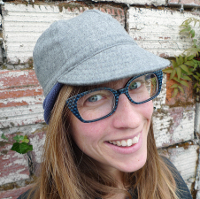 My book, Bikenomics: How Bicycling Can Save the Economy, comes out in December, and I’m already getting pushback about the title. It makes a bold claim, alright—our economy is in a bad way. I didn’t believe it myself when I first started writing about this topic, but the facts–and my experience—have me convinced.
My book, Bikenomics: How Bicycling Can Save the Economy, comes out in December, and I’m already getting pushback about the title. It makes a bold claim, alright—our economy is in a bad way. I didn’t believe it myself when I first started writing about this topic, but the facts–and my experience—have me convinced.
What’s more, I’m ready to double down. After researching this book, I think the claims should be bolder—bicycling can save our health, our communities, our kids, our cities, suburbs, and towns, our food supply, and our lives. (There’s a reason authors aren’t allowed to design our own book covers; given the chance I would have filled mine with bold text to this effect.)
Of course, “save” is a tricky word. What we have now—whether we’re talking about our whole global economy or our individual transportation habits—can’t be sustained. Life as we know it is changing quickly and irrevocably, landscapes and lives literally shifting in floods and storms. When a creative project goes wrong or gets bogged down, you often need to completely transform it in order to save it—or at least the way you think about it. We’ve all read a lot of books that are unsatisfying or bad because the author got caught in a rut going in the wrong direction and just kept plodding along. Whenever I got stuck writing this book, I had to go back to the outline, to see if I could reinvent the shape of the book to better get at the ideas I needed to convey. I did this again and again. Each time it was terrifying, but each time it saved this book from taking readers somewhere hopeless or confusing.
It helps that the book is largely about people who are able to think outside the ruts our society and our daily lives are in, to envision a better big picture and show the rest of us the way to get there. At the risk of mixing up too many semi-metaphors, bicycles are one of the best vehicles for this sort of creative social change—they move us through our lives and landscapes, quickly but still at a human speed, where we can look around and recognize ourselves and each other. We’ve already entered an era of catastrophic change, but we can move towards it on our own terms, at our own speed, and while building something meaningful.
I wrote Bikenomics not so much because I love and believe in bicycles (though I do) but because I love and believe in the power of people to change our lives and world. Bicycles deliver all that light bulbs, recycling, reusable grocery bags and electric cars promise: They give us the power to transform our individual lives and make real, satisfying, measurable changes in our communities without waiting for anyone or anything else to show us the way.






